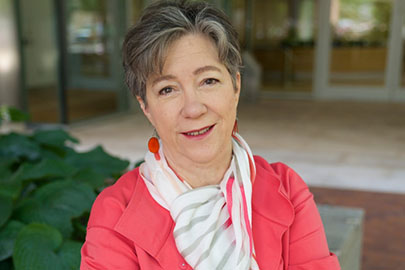46th Rosenstiel Award to Susan Lindquist will celebrate her remarkable scientific legacy
The late MIT biologist is being honored for research on the consequences of protein misfolding in cancer, neurodegeneration and infectious disease.

The 46th Lewis S. Rosenstiel Award for Distinguished Work in Basic Medical Research has been awarded to Susan Lindquist, who tragically passed away on October 27 at age 67. In honor of Lindquist’s remarkable career, a symposium will be held on March 22, 2017, at Brandeis University. Three of Lindquist’s former colleagues, Daniel Jarosz (Stanford University), Leah Cowen (University of Toronto) and Sandro Santagata (Harvard University) will speak about Lindquist’s far-ranging scientific legacy.
Susan Lindquist was Professor of Biology and a member of the Whitehead Institute at MIT and a Howard Hughes Medical Institute investigator. Her research focused on the mechanisms of protein folding and the severe consequences of protein misfolding that are manifest in cancer, neurodegeneration and infectious disease.
Lindquist’s early work focused on prions, proteins that can adopt alternative conformation and can induce a similar refolding of other copies of the same protein. Her work extended to understanding how protein “chaperones” guide proper protein folding and prevent misfolded proteins from aggregating.
Much of Lindquist’s work has centered on protein aggregates that form in neural cells in diseases such as Parkinson's disease, ALS and Huntington's disease. Lindquist was a founder of two companies, FoldRx Pharmaceuticals (now part of Pfizer) and Yumanity Therapeutics, that are developing therapies for these diseases. She was a member of the National Academy of Sciences, the National Academy of Medicine and the Royal Society. In 2010, she received The President's National Medal of Science.
The Rosenstiel Award has a distinguished record of identifying and honoring pioneering scientists who were subsequently honored with the Lasker Award and Nobel prize. Last year we honored Yoshinori Ohsumi for his description of protein degradation through the process of autophagy. In October, Ohsumi was awarded the Nobel Prize in Physiology or Medicine.
In 2014, the Rosenstiel Award was conferred on Fred Alt for his work in understanding the mechanism of genome rearrangements in immune and cancer cells. The year before, the trio of Wilfred Denk, David Tank and Walt Webb were chosen for their study of neural circuits using multi-photon microscopy. In 2012, Stephen Elledge was honored for uncovering the eukaryotic DNA damage response pathways. Previous winners include Nahum Sonnenberg; David Allis and Michael Grunstein; Jules Hoffman and Ruslan Medzhitov; and John Gurdon, Shinya Yamanaka and Irving Weissman. A full list of awardees can be found at http://www.brandeis.edu/rosenstiel/rosenstielaward/past.html.
The Rosenstiel Award selection committee, composed of scientists from Boston-area universities, welcomes nominations for the 47th award. We especially encourage nominations of distinguished women and minority scientists. Details of the nomination process can be seen at http://www.brandeis.edu/rosenstiel/rosenstielaward/index.html.
Categories: Research, Science and Technology





